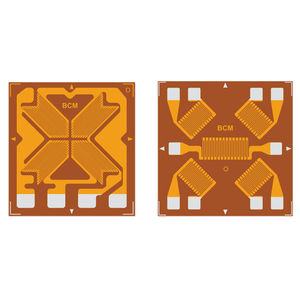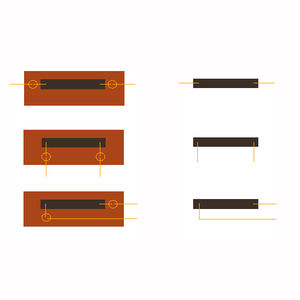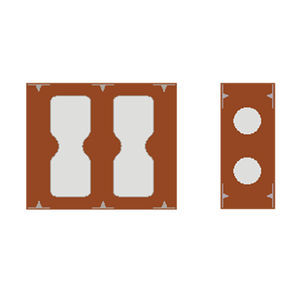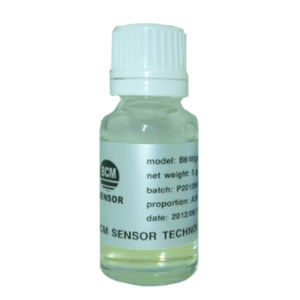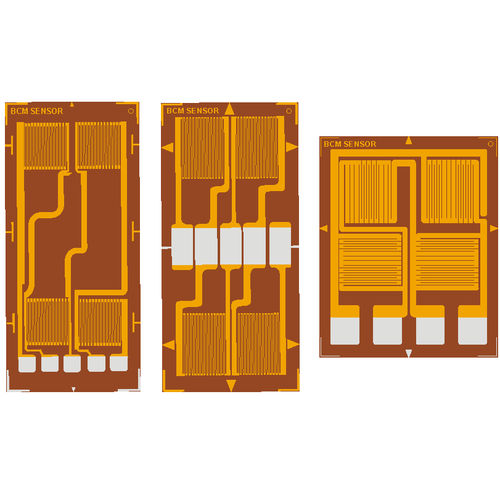
- Detection - Measurement
- Force Measurements
- Resistive strain gauge
- BCM SENSOR TECHNOLOGIES bv
Resistive strain gauge FG for stress analysisencapsulatedfull-bridge


Add to favorites
Compare this product
Characteristics
- Technology
- resistive
- Other characteristics
- for stress analysis, encapsulated, full-bridge
- Resistance
Max.: 2,000 Ohm
Min.: 350 Ohm
- Gauge factor (k)
Max.: 2.2 unit
Min.: 1.86 unit
Description
BCM SENSOR full-bridge strain gauges are specially developed for manufacturing precision force transducers which employ bending beam working principle. For the purpose of this specific application, the full-bridge strain gauges are temperature and creep compensated, and they can be either encapsulated or open-face according to the requirement.
The karma gauges can be manufactured with effective modulus compensation (EMC). The EMC gauges are mostly for manufacturing low-cost force transducers, because with the EMC gauges the manufacturers can eliminate the use of compensation resistors and achieve the sensitivity compensation.
For creep compensation, there are 18 creep codes: “N10, N9, N8, …, O, …, P5, P6, P7″. The “N10” is the most negative creep code, while the “P7″ is the most positive one. The “O” stands for a moderate creep code. For a specific strain gauge, please find its available creep code(s) at the column “&” in its selection chart. For a customized creep code, consult BCM SENSOR.
For more information on temperature compensation (STC), creep compensation, and EMC of strain gauges, please refer to the corresponding articles respectively on the website of BCM SENSOR.
Catalogs
No catalogs are available for this product.
See all of BCM SENSOR TECHNOLOGIES bv‘s catalogsExhibitions
Meet this supplier at the following exhibition(s):

Other BCM SENSOR TECHNOLOGIES bv products
Strain Measurement
Related Searches
- Force sensor
- Tension/compression force sensor
- Steel force transducer
- Strain gauge force transducer
- Stainless steel force sensor
- Weighing force sensor
- Beam type force transducer
- Compression force sensor
- Weighing terminal
- Digital weighing terminal
- IP67 force transducer
- Aluminum force sensor
- IP65 force sensor
- IP68 force sensor
- Shear beam load cell
- OIML load cell
- Analog force sensor
- Off-center load cell
- High-precision force sensor
- Compact force sensor
*Prices are pre-tax. They exclude delivery charges and customs duties and do not include additional charges for installation or activation options. Prices are indicative only and may vary by country, with changes to the cost of raw materials and exchange rates.







